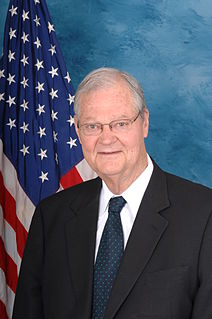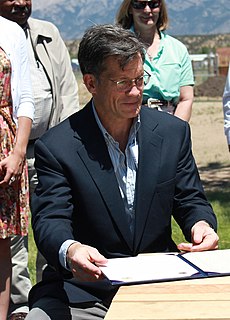A Quote by Ike Skelton
In fact, because of their connection to the land, farmers do more to protect and preserve our environment than almost anyone else. They are some of the best environmentalists around.
Related Quotes
One of the reasons why we started the Green Belt Movement is to work with these ordinary peasant farmers so as to educate them that, despite the fact that they are poor, it is in their interest to protect the soil that they have, to protect the forest they have, to protect the land that they have, because if they don't do it, things can be only worse tomorrow for them for them and for their children.
Some people are called to be a good sailor. Some people have a calling to be a good tiller of the land. Some people are called to be a good friend. You have to be the best at whatever you are called at. Whatever you do. You ought to be the best at it – highly skilled. It's about confidence, not arrogance. You have to know that you're the best whether anybody else tells you that or not. And that you'll be around, in one way or another, longer than anybody else. Somewhere inside of you, you have to believe that.
Isn't it true that whatever isn't determined by our genes must be determined by our environment? What else is there? There's Nature and there's Nurture. Is there also some X, some further contributor to what we are? There's Chance. Luck. This extra ingredient is important but doesn't have to come from the quantum bowels of our atoms or from some distant star. It is all around us in the causeless coin-flipping of our noisy world, automatically filling in the gaps of specification left unfixed by our genes, and unfixed by salient causes in our environment.
When you look at farmers and ranchers, for example, they are our first environmentalists. They are our first conservationists. When you look at the greatest asset that they have, it is their land. They care about the water that they drink. They care about the air that they breathe. We should see them as partners, not adversaries.
We see that the environment is something to exploit, because we see the environment in terms of minerals for example, or forests, or even raw materials that we produce on our land, or even land itself. We see it in terms of what we can exploit rather than the medium in which all of these activities have to take place.
Land ownership in Guatemala is more unequal than anywhere else in Latin America. Roughly 90 percent of Guatemalan farms are too small to support a family. A tiny group of Guatemalans owns a third of the country's arable land; more than 300,000 landless peasants must scrounge a living as best they can.

































